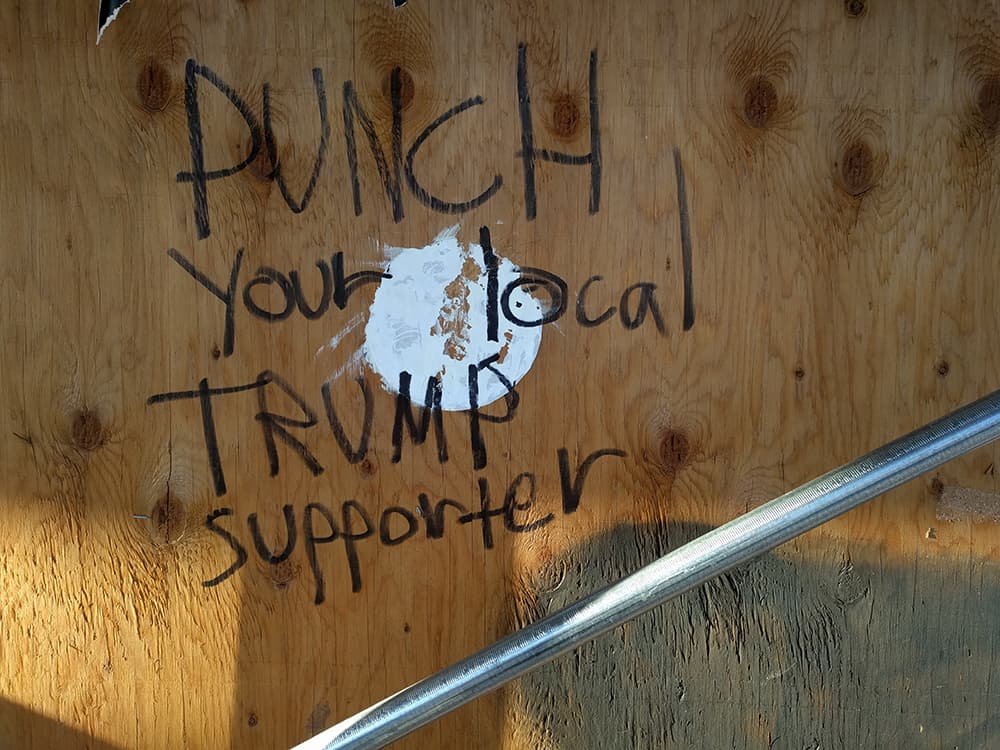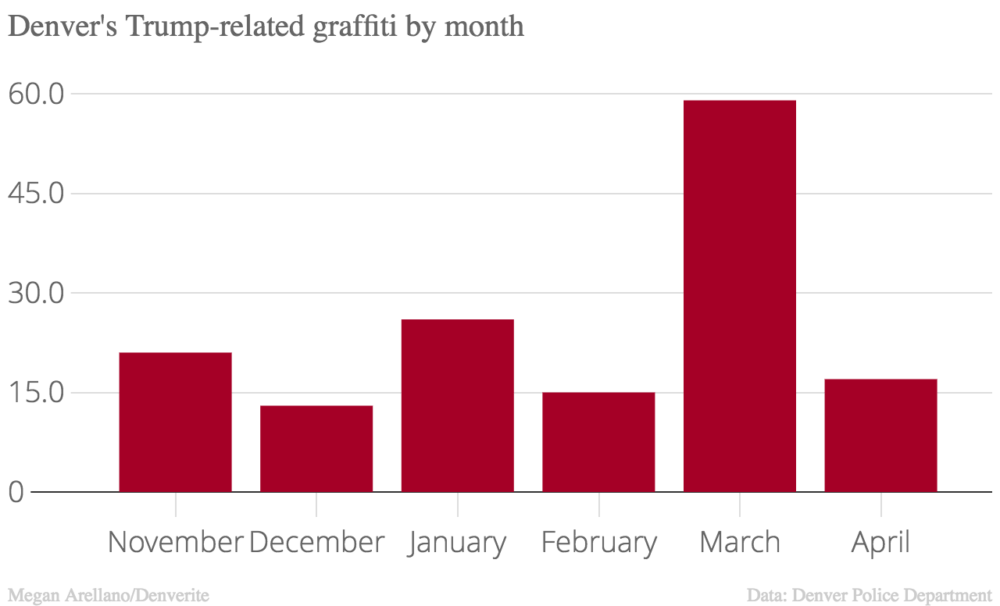
Since the 2016 presidential election, there have been at least 151 graffiti incidents in Denver that mention President Trump in one way or another, according to data from the Denver Police Department.
In this chart of the week, we're mapping out the Trump-related graffiti epidemic that has already cost the city $21,230 to clean up.
First, what's the state of this political discourse, such that it is? Early coverage after the election found graffiti that seemed to support Trump, including one woman whose car was spray-painted. Later, there was the couple whose historic home was spray-painted with phrases like "death to Trump."
Denver Police Department Graffiti Unit Detective George Gray says all political graffiti has been increasing dramatically over past few months.
"Trump has obviously impassioned a lot of people and some feel that they've got to get the message out some way," he said. "A lot of people are doing stuff they probably would not have done prior to this because they're seeing it more often, so they think they can do this or it's part of their way of protesting."
So perhaps unsurprisingly, the graffiti is negative, not positive, towards Donald Trump.
And while November and January were popular months for Trump-related graffiti tags, neither topped the charts -- in the available data from Denver Police, March was the most popular month by far.

Detective Gray says that people are also spurred into action by seeing graffiti that they disagree with -- so your anti-Trump tag may inspire a pro-Trump tag and vice-versa.
You can see how that plays out across the city in the map below. In areas like Colfax, one graffiti incident quickly inspires lots more that spread down the street.
The whole trend has most affected City Park and other downtown-adjacent areas, but it's really all over the city.
Methodology: Graffiti was determined to be either negative or positive to Trump based on the content of the message. Phrases like "stop Trump," "kill Trump," or "fuck Trump" were considered negative. Phrases like "hail Trump" or "viva Trump" were considered to be affirmations of Trump, and therefore positive towards him. In cases where messages had been written over or the content was unclear, the designation was other.












